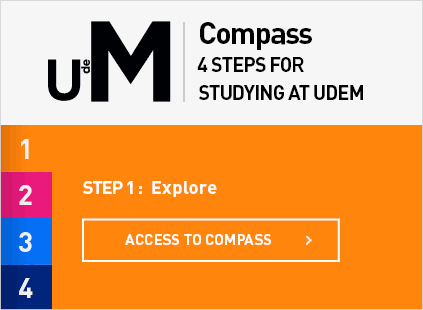French: A Must-Learn Language
- Planning your academic journey
Carla Simon

Spoken by over 200 million people in more than 70 countries, French is (once again) becoming one of the most important languages to know. Many events have contributed to this trend, including Brexit. Without an English-speaking country in the European Union, French and German will probably rise in status. Furthermore, French is an official language for the UN, NATO and the International Olympic Committee. It also continues to be the second most-taught language in the world.
If you are interested in music, literature or the arts, French is a must. It can also be useful for those who love to travel (and who doesn’t, really?) since France is the most visited country in the world and there is always the slight possibility that French people will be nicer to you if you can say a few words in their language. French is also an official language of the second-largest country in the planet, friendly Canada. Whether you want to travel or study abroad, new language skills can lead to an amazing international experience. In fact, the best student city in the world is Montreal, a bilingual metropolis. On the streets, you can easily hear someone asking a question in English with the other person answering in French, or vice-versa.
With a diploma from a francophone university, you have a better chance of finding an excellent job after graduation. Many companies and government positions prefer, and often insist on, bilingual candidates. It can really open doors for you, not only in Canada but also throughout the world. Moreover, the diverse network that you build while studying abroad is crucial when looking for a job. In a cosmopolitan city such as Montreal, the opportunities for widening your network are vast.
Enhancing your language skills can help you not only improve your career perspectives and facilitate your future travel plans, but it also actually makes you smarter. According to The Telegraph, there are least seven cognitive advantages to learning a foreign language, among them: the undeniable improvement of your decision-making skills and memory. This means that you’ll be more productive at work and more likely to succeed.
Of course, speaking English remains indispensable, but don’t stay in your comfort zone for too long. When you learn another language, you can experience other things in life. You can make new friends and understand other cultures. Let’s be honest, there is nothing better than reading classic books in their original language.
Last but not least: French is not a difficult language to learn. For those who have minimal knowledge of any Latin language such as Italian, Spanish, Portuguese, or Romanian, it will already be easier. But even so, English speakers will also have step up since English and French share a lot of words. Approximately 50% of modern English comes from French. If you know déjà vu, cul de sac, toilet and fiancé, you already speak some French. Go for it, it will be worth it. After all, it’s la langue de l’amour.
Carla Simon is a Recruitment Advisor at Université de Montréal where she got her Master’s degree in International Studies. Carla worked as a journalist for several years in Brazil, where she comes from. Interested in politics, books, vegetarian food, and languages, she has adopted as her hometown a place that brings all those things together: Montreal.

